How is AI Utilized in Healthcare Apps?
30 Aug 23 

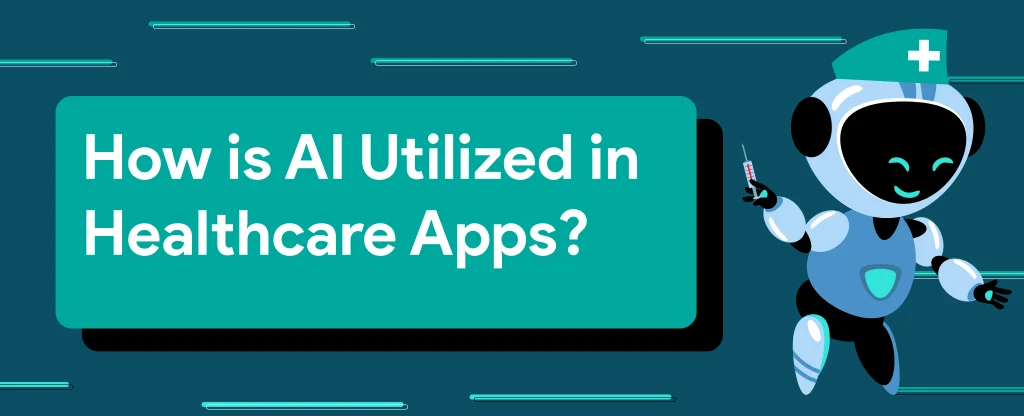
AI’s revolutionary entry into the medical sector has transformed how we assess, treat, and evaluate patients. This technology significantly enhances medical studies and performance by facilitating more individualized therapies and delivering more precise determinations.
The capacity of AI in healthcare apps to swiftly analyze enormous quantities of patient records aids in identifying illness signs and patterns that might otherwise go unnoticed by medical experts. Medicine and artificial intelligence (AI) have many possible uses, from analyzing CT scans for early diagnosis to forecasting results from digital medical records.
Utilizing AI in hospitals and clinics may make medical facilities more sophisticated, quicker, and more effective in treating thousands of patients globally. Artificial Intelligence is undeniably powering the future of healthcare, revolutionizing the way patients receive high-quality treatment, reducing doctor expenses, and enhancing patient satisfaction.
AI in Healthcare Apps: Types
Artificial Intelligence is a general term that refers to several different yet connected activities. Some of the most prevalent uses of AI in healthcare include the following:
- Machine Learning (ML)
Machine Learning includes training algorithms using big data sets, particularly those from health records, to create models that can classify data or predict results.
- Robotic Process Automation (RPA)
RPA is the practice of automating administrative and clinical operations using AI in computer programs. Several healthcare organizations use RPA to enhance the quality of care and the regular operations of their services.
- Neural Language Processing (NLP)
NLP is the application of ML to comprehend spoken or written human language. Medical field uses NLP to understand written materials, including reports, notes, and published research.
- Deep Learning
Deep learning is a subtype of machine learning that uses more extensive data sets, extended training periods, and several layers of ML algorithms to create neural systems that can handle increasingly tricky tasks.
Application of AI in Healthcare Apps
AI is solid to implement accurate and effective technologies to provide better medical care, from utilizing it to find connections between genetic codes to increasing hospital efficiency. Using AI in healthcare has several advantages over conventional data analysis and medical decision-making techniques.
Because AI algorithms can comprehend training information, the tools become increasingly precise, enabling people to get previously unattainable data on treatment fluctuations, diagnoses, and patient results.
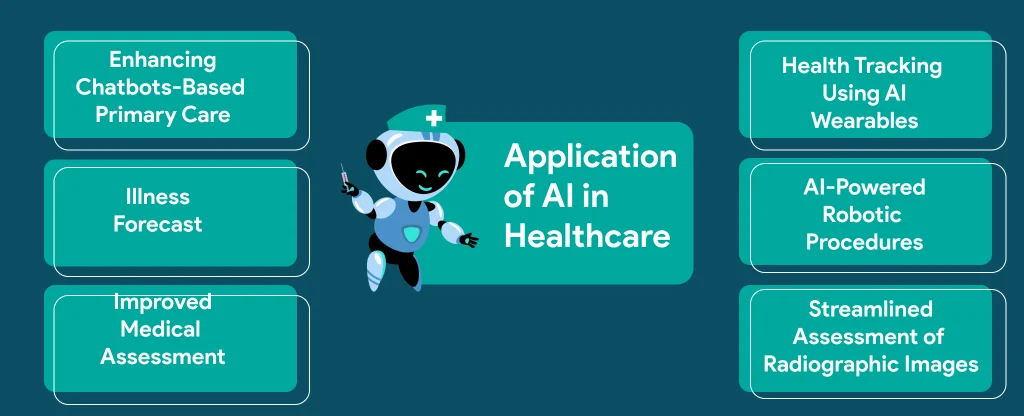
1. Illness Forecast
Around the globe, the frequency and death rates of chronic illnesses are rising. Nevertheless, considering the patient’s knowledge that is now accessible, artificial intelligence algorithms forecast such disorders.
These strategies and technologies can assist medical professionals in spotting these diseases considerably more quickly, encouraging early action and hastening the decision-making process.
Additionally, it may make it possible to analyze images faster and cheaper, allowing doctors to take more scans and provide better-focused therapy. Breast and skin malignancies, cardiac arrest, respiratory infections, and eye problems are successfully detected using this method.
Timely disease risk assessment hence aids patients in initiating therapy earlier and inspires them to alter their poor dietary, daily routine, and fitness practices.
2. Enhancing Chatbots-Based Primary Care
Driven by AI tools integrated with ML algorithms, patients can ask questions about their well-being using chatbots, and NLP to help them solve the issue. These chatbots are accessible around-the-clock and aid in the automation and seamless operation of primary care.
This medical solution helps lighten the pressure on medical professionals so they may concentrate on more urgent and severe patients. Additionally, it prevents needless hospitalizations and reduces time and money spent on unneeded doctor visits.
3. Health Tracking Using AI Wearables
AI-driven gadgets and innovative technology might provide healthcare facilities with a creative, competitive advantage. By 2025, the market for wearable AI health care will worth $180 billion, according to GMI.
By providing patients with digital guidance and the option to reach out to actual medical personnel for support, it helps patients more effectively. Furthermore, they organize health records, protect confidential patient information, make doctor appointments, remind patients of follow-up visits, and perform other duties.
For example, portable cardiac monitors and mobile apps use machine learning algorithms to provide remote monitoring and guidance of heart issues by medical professionals. AI-driven wearables may be fantastic tools for healthcare professionals looking to enhance their clinical workflows and cut costs due to their portability, precision, and simplicity of use.
4. AI-Powered Robotic Procedures
Collaborative robotics and artificial intelligence have transformed surgery. Many healthcare professionals are using robots to help them during operations that call for quickness, accuracy, control, and adaptability.
This accuracy assists in preventing unwanted or accidental actions during operations, which reduces difficulties, lowers patient safety concerns, and speeds up recovery. AI-enabled robots use an illustration of a robotic process to effectively plug the abnormal voids connecting the uterus and the bladder.
5. Improved Medical Assessment
Doctors must consider every relevant detail when assessing patients, necessitating interacting with unorganized information in health records.
We may save and analyze massive amounts of data through different AI engines and Natural Language Processing, making it easier to evaluate and provide suggestions for each patient uniquely and enhancing medical decision-making.
It may also use transcription generation and text summarization algorithms to extract the key elements of the patient’s dialogue with the doctor and summarize them into more precise and well-organized data points. This lessens the need for detailed records, reduces doctor exhaustion, and enhances the standard of treatment.
6. Streamlined Assessment of Radiographic Images
Medical professionals may glean significant details from complicated pictures, such as CT scans and MRIs, using big data and deep learning technology. The program can give extra measurements and findings to support the radiologist’s analysis by analyzing trends in the digital photograph, which can lead to a quicker diagnosis.
In addition to providing an optimum, timely examination, it may enhance radiation workflow by attaining quality assurance and effectiveness and simplifying risk assessment, a valuable method of identifying patients in greater danger.
AI-based healthcare diagnosis will not replace radiologists; instead, it will increase their involvement in diagnosing and deciding, which will help decrease medical mistakes and mishaps.
Challenges to AI Implementation in Healthcare Apps
Healthcare applications can significantly benefit from AI technology. However, several obstacles are to be successfully overcome.
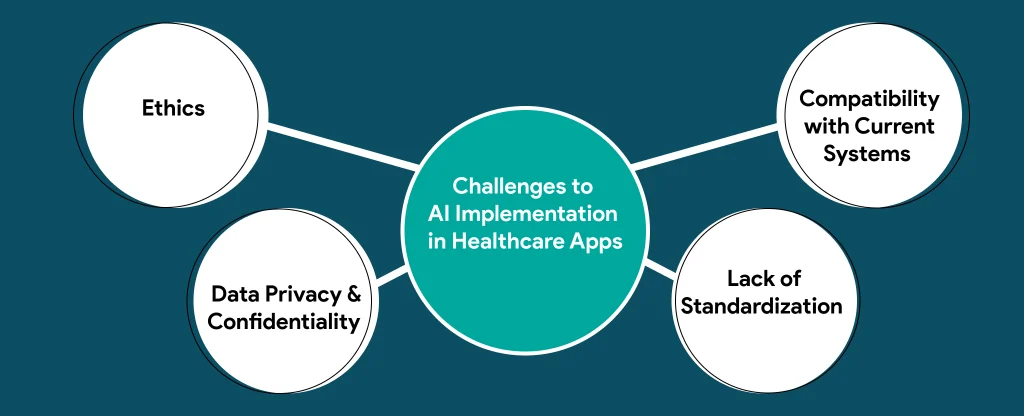
- Ethics
When integrating AI into healthcare apps, several ethical concerns are considered. For instance, there can be issues with algorithmic bias or the effect on patient autonomy.
- Data Privacy & Confidentiality
The confidentiality of patients must be protected since healthcare data is crucial. Implementing AI technology in healthcare apps necessitates the inclusion of appropriate safety protocols to ensure the security of patient information.
- Compatibility with Current Systems
It might not be easy to integrate AI with current healthcare systems. The requirement for additional resources and staff training in using the latest innovations may arise for healthcare providers.
- Lack of Standardization
The need for more standardization in healthcare data might make integrating AI into various systems difficult. It is hard to compare data from multiple sources due to the need for more standardization.
These difficulties highlight the importance of careful preparation and thought when integrating AI technology into healthcare apps. Medical organizations must solve technical issues like standardization and system compatibility while ensuring patient data confidentiality is secured, and ethical concerns are considered.
Guidelines for AI Integration in Healthcare Apps
Healthcare organizations should adhere to several guidelines to enable the effective use of AI technology in healthcare apps. Essential best practices include the following:
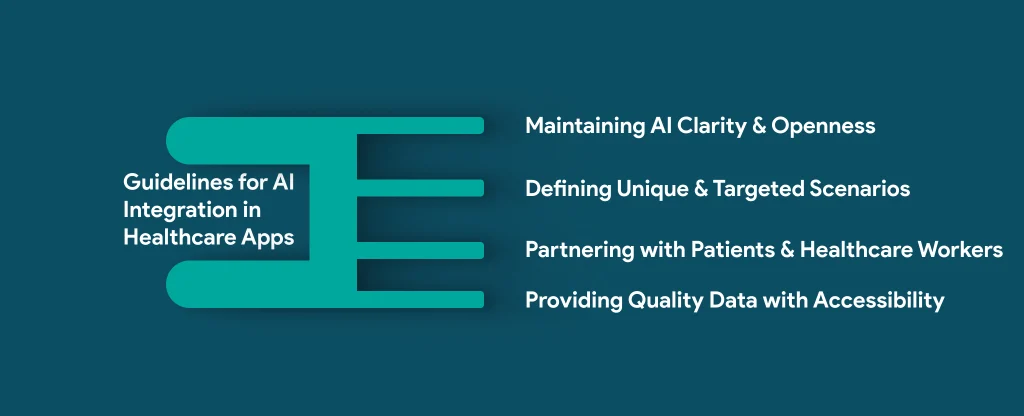
- Maintaining AI Clarity & Openness
Healthcare organizations should ensure that the AI they use in their apps is clear and understandable. As a result, trust between patients and medical providers will increase, and technologies are employed morally.
- Defining Unique & Targeted Scenarios
Healthcare organizations should pinpoint specific situations where AI might be beneficial, such as enhancing diagnostics or forecasting illness risk. This helps with task concentration and guarantees that the innovation will be utilized efficiently.
- Partnering with Patients & Healthcare Workers
AI should be created in conjunction with patients and healthcare practitioners. This will guarantee that technology is used in a way that is both morally and productively connected with the demands of both patients and doctors.
- Providing Quality Data with Accessibility
Reliable and dependable outcomes from AI algorithms depend on the availability of accurate information. Healthcare providers should guarantee that all information is available to the systems and of suitable quality.
These best practices highlight the value of careful preparation and teamwork when integrating AI into healthcare apps. Healthcare organizations ensures that AI successfully enhances patient care and develop the healthcare sector by adhering to these best practices.
Wrapping Up
AI will probably affect the future of healthcare, just as it will in many other industries. AI aids in the research and development of novel medical treatments, along with enhancing medical center activities, patient diagnoses, the creation of treatment plans, and quality of life.
Over the following ten years, there will likely be a significant increase in the application of artificial intelligence in healthcare. Grand View Research estimated that the demand for AI for medical applications will be worth $208.2 billion in 2030, a significant increase from the $15.4 billion expected in 2022.
- Agentic AI1
- Android Development3
- Artificial Intelligence34
- Classified App3
- Custom App Development5
- Digital Transformation12
- Doctor Appointment Booking App14
- Dropshipping1
- Ecommerce Apps40
- Education Apps2
- Fintech-Apps37
- Fitness App4
- Flutter4
- Flutter Apps20
- Food Delivery App5
- Grocery App Development1
- Grocery Apps3
- Health Care10
- IoT2
- Loyalty Programs9
- Matrimony Apps1
- Microsoft1
- Mobile App Maintenance2
- Mobile Apps129
- Product Engineering6
- Progressive Web Apps1
- React Native Apps2
- Saas Application2
- Shopify9
- Software Development3
- Taxi Booking Apps7
- Truck Booking App5
- UI UX Design8
- Uncategorized6
- Web App Development1









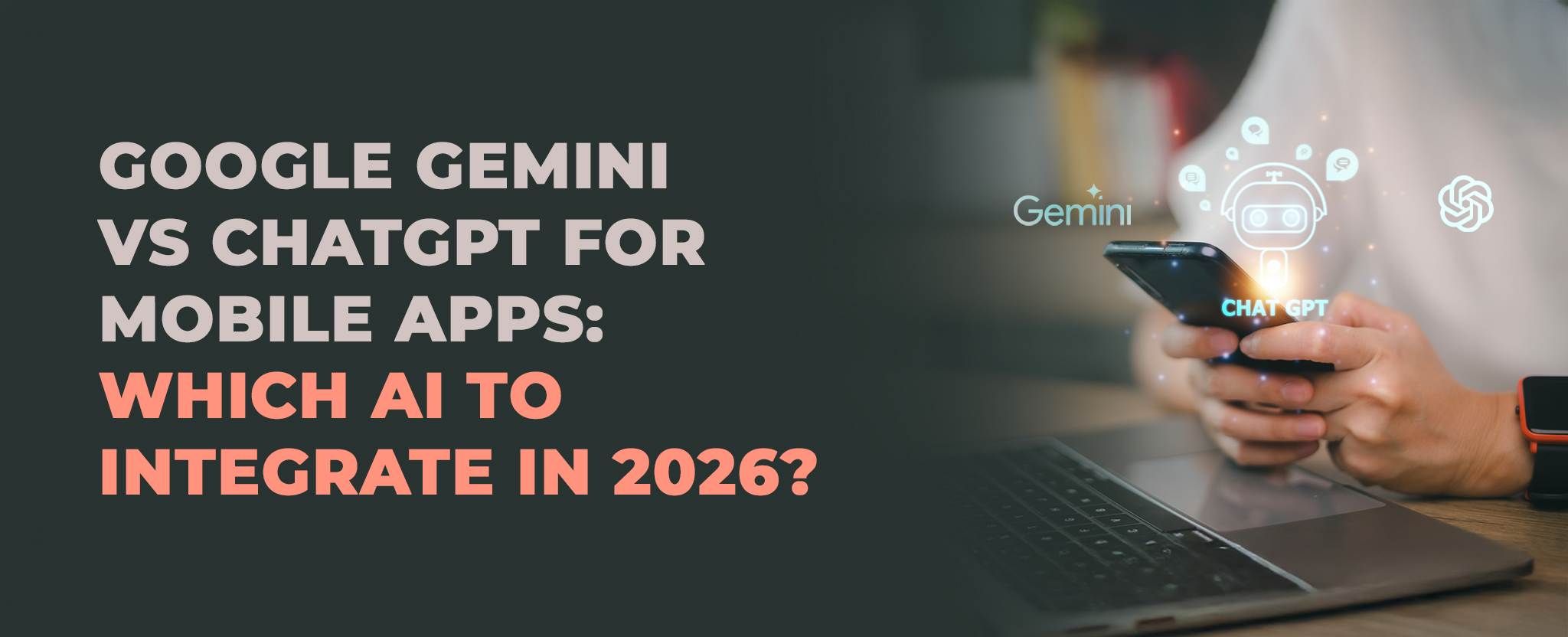
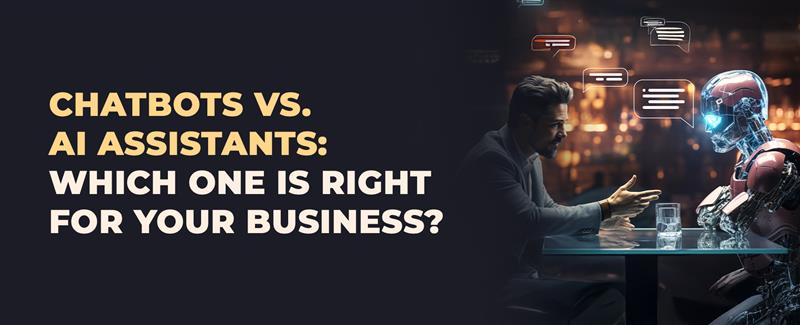








Comments